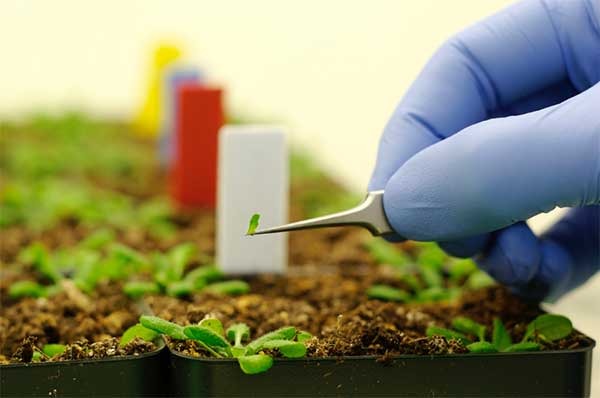ISLAMABAD: Nanotechnology can massively improve the production of Pakistan’s agricultural sector, says a senior researcher.
Dr Armghan Shahzad, Senior Scientific Officer at National Agriculture Research Centre (NARC) Islamabad, said while talking to WealthPK that nanotechnology has enormous potential to grow our agriculture sector.
“Attempts to apply nanotechnology in agriculture began with the growing realisation that conventional farming technologies would not be able to increase productivity any further or restore ecosystems damaged by existing technologies to their pristine state,” he said.
He said the use of nanotechnology in agriculture gained momentum during the last decade with lots of public funding, but the pace of development is slow.
“Nanotechnology can be used to enhance plant growth and improve crop yields through the use of nanoparticles and nanocomposites that can provide essential nutrients and minerals to plants,” he explained.
He said nanotechnology develops more effective and sustainable pest and disease control methods by creating nanomaterials that can target specific pests and diseases.
“We can create drought-tolerant crops by using nanoparticles to improve water retention in plants, thus increasing their ability to survive in arid conditions,” he added.
Dr Armghan said that by creating nanomaterials that provide essential nutrients and minerals to the soil, nanotechnology can improve soil health and promote better plant growth.
“Additionally, by using nanotechnology, farmers can create precision agriculture systems that maximise crop yields by monitoring and controlling environmental factors such as temperature, humidity, and nutrient levels. In order to improve food quality and extend the shelf life of food items, nanotechnology can be used to develop food packaging that controls the environment’s temperature and humidity,” he said.
The researcher said technological intervention in farming can improve crop productivity with appropriate mechanisms and government intervention.
“The government should invest in research and development to understand the potential of nanotechnology in the agriculture sector. This will help identify the specific areas where nanotechnology can be applied to improve crop yields, reduce pest and disease outbreaks, and improve soil fertility,” he suggested.
He said the government should provide training and education to farmers, extension workers, and other stakeholders in the agriculture sector. This will help them understand the potential benefits of nanotechnology and how to use it effectively.
“Funding and grants should be provided to farmers, researchers, and organisations that are working on developing and implementing nanotechnology in the agriculture sector,” he added.






